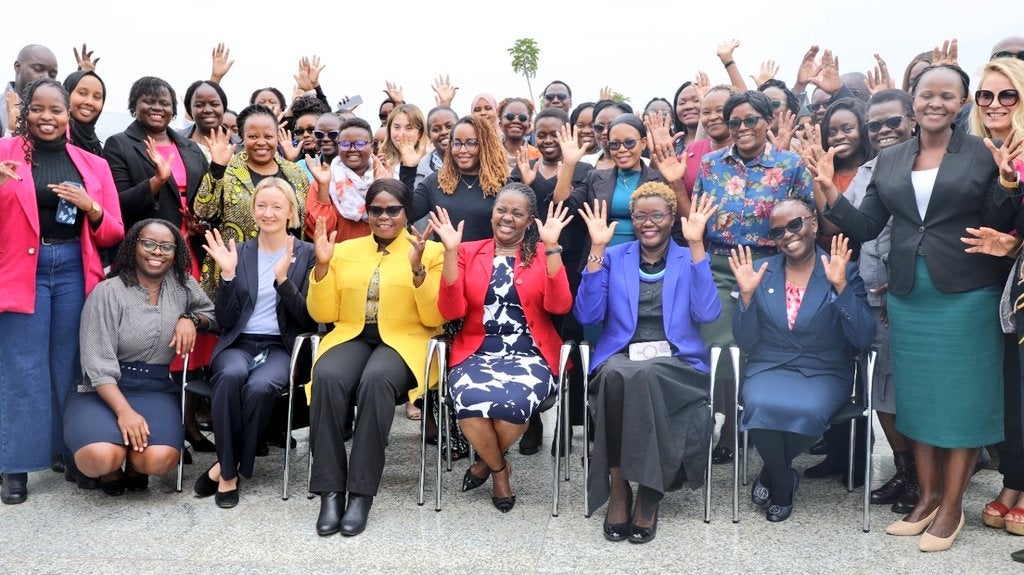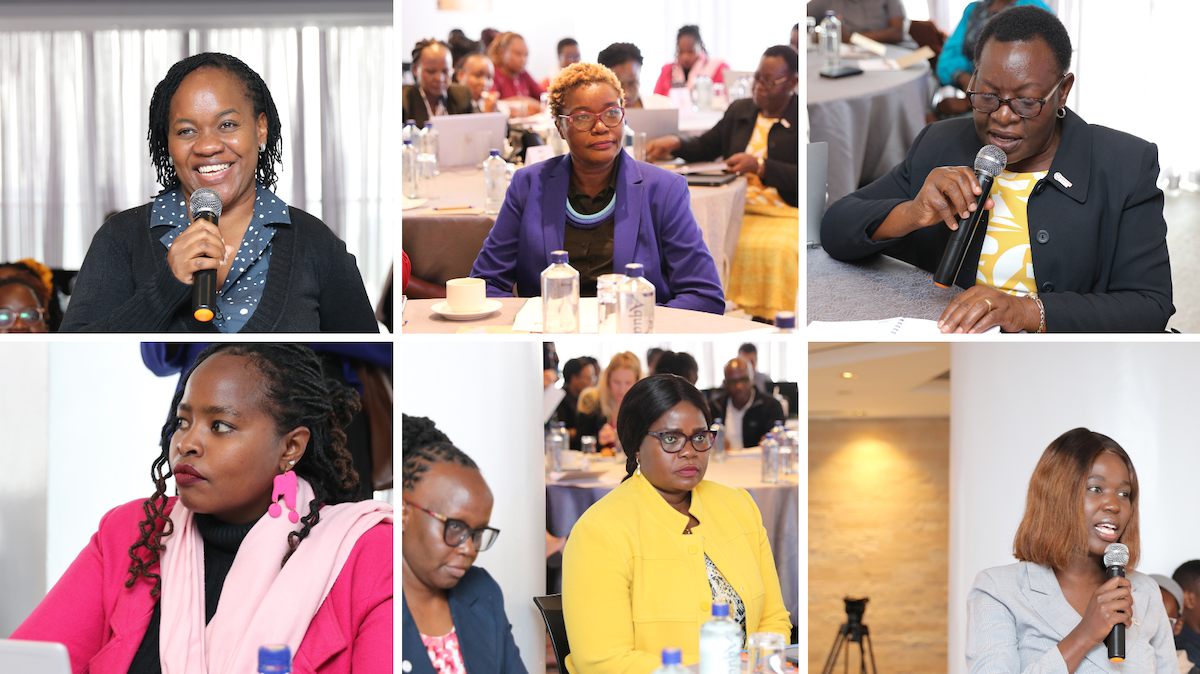Advancing gender equality through Generation Equality ‘s multi-stakeholder approach and local action in Kenya
Date:
Stakeholders from across Kenya gathered in Nairobi for a landmark event that brought together Generation Equality commitment makers based in Kenya. The event aimed to raise awareness of Generation Equality's efforts being advanced by commitment makers and partners at national, regional, and global levels. It also fostered the creation and strengthening of partnerships, facilitated the sharing of information about upcoming major events, and encouraged the development of synergies and coalitions on dedicated topics and actions.
Organized by UN Women, the event provided a platform for national and international partners, civil society organizations, youth representatives, the private sector, and government officials to review the progress of commitments implemented at both local and regional levels.
Generation Equality, the world’s leading effort to unlock political will and accelerate investment and implementation on gender equality, was at the heart of the discussions. This movement aims to create multistakeholder alliances, promoting progress, advocating for change, and driving bold actions. Central to this event was the recognition that the success of Generation Equality lies in localizing its goals—engaging stakeholders at the grassroots level to ensure sustainable and impactful outcomes.

"This meeting is unique and the first of its kind in Kenya, bringing together all Action Coalitions—from Gender-Based Violence to Economic Justice and Rights, Feminist Action for Climate Justice, Technology and Innovation, Feminist Movements and Leadership, and Bodily Autonomy and SRHR," remarked Anna Mutavati, outgoing UN Women Kenya Representative and incoming Deputy Regional Director for East and Southern Africa.
“As a co-leader of the Generation Equality Forum #GBV Action Coalition, Kenya is committed to accelerating efforts towards the achievement of gender equality and the elimination of harmful practices that deprive victims of their dignity and infringe on their human rights,” said Anne Wang’ombe, Principal Secretary, State Department for Gender and Affirmative Action, Ministry of Gender, Culture, the Arts and Heritage in the Republic of Kenya.
Baldwin Anyiga, Principal Economist at the State Department for Gender and Affirmative Action shared a presentation outlining Kenya’s wide range of commitments to gender equality. He detailed Kenya's impressive progress, particularly its 12-action plan targeting gender-based violence at both the national and county levels. The country has rolled out critical programs, including toll-free lines and clinics for survivors of gender-based violence, as well as substantial resources to sustain these efforts.
The event also featured a dynamic panel discussion with representatives from various Action Coalitions (ACs). Speakers included:
- Eva Maria Okoth from the International Land Coalition, representing the AC on Action for Climate Justice
- Anika Jane Dorothy from the Clinton Foundation, representing Generation Equality youth activists
- Nelly Munyasia from Reproductive Health Network Kenya, representing the AC for Bodily Autonomy and SRHR
- Nancy Njoki from Girl Effect Kenya, representing the AC for Technology and Innovation for Gender Equality
- Njeri Migwi from Usikimye Kenya, representing the Gender-Based Violence Action Coalition
- Amar Nijhawan, former Women’s Rights Policy Specialist at Oxfam under the Economic Justice and Rights AC
The event focused on building awareness of the ongoing efforts by Commitment Makers in Kenya and explored synergies for future initiatives. As Kenya holds the highest number of commitments from a single country—with 103 commitments being implemented by Kenyan organizations—the meeting served as an important moment to reflect on progress and plan for the future.
Reflecting on the benefits of Generation Equality, Njeri Migwi from Usikimye Kenya said: “Generation Equality is affording us platforms that we couldn't have been able to access before, data, and also resources that we were not able to access before”.
The discussions underscored the need for continued collaboration and cross-Action Coalition learning.

“Generation Equality provides us a platform to connect, showcase our work, share our challenges and network with other commitment makers,” said Nelly Munyasia from Reproductive Health Network Kenya.
A comprehensive briefing by Action Coalition Thematic leads was provided to participants on upcoming global meetings and related processes, such as Beijing+30, Summit of the Future and Conferences of the 3 Rio Conventions.
The session concluded with closing remarks by Jemimah Njuki, Chief of Women’s Economic Empowerment at UN Women, and Hodan Addou, UN Women Regional Director a.i. for East and Southern Africa, who both reaffirmed UN Women's commitment to working alongside the Government of Kenya and other partners to accelerate gender equality initiatives.
“What the commitment makers are doing through their work is directly contributing to Beijing+30 and the SDGs. Every action, every initiative, and every engagement is feeding into these larger processes to advance gender equality and women’s empowerment globally,” said Ms. Addou.
The event highlighted the importance of scaling up Generation Equality at national and regional levels and the power of partnership and Generation Equality’s multi-stakeholder approach in driving gender equality.